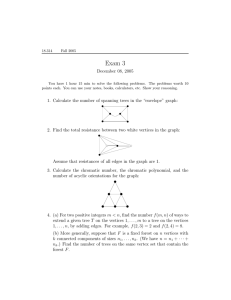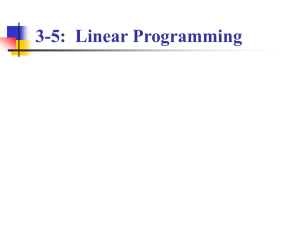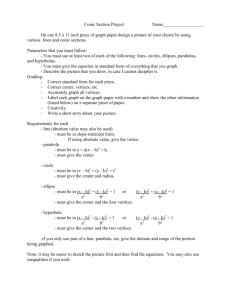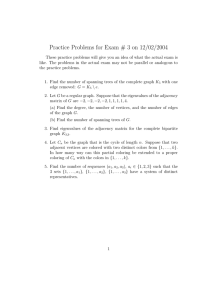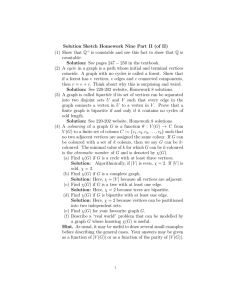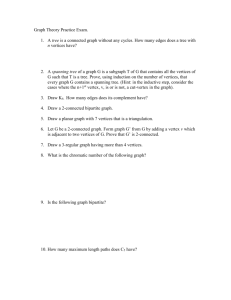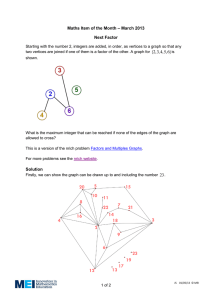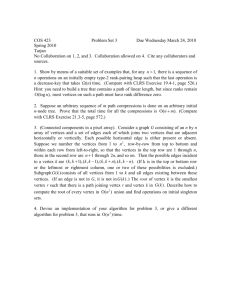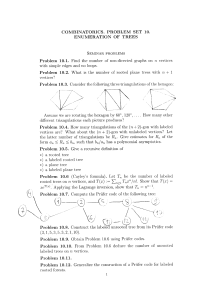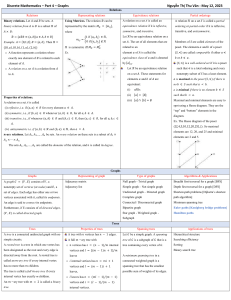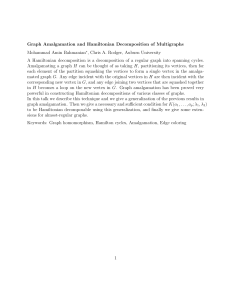ex5 - Department of Systems Engineering and Engineering
advertisement
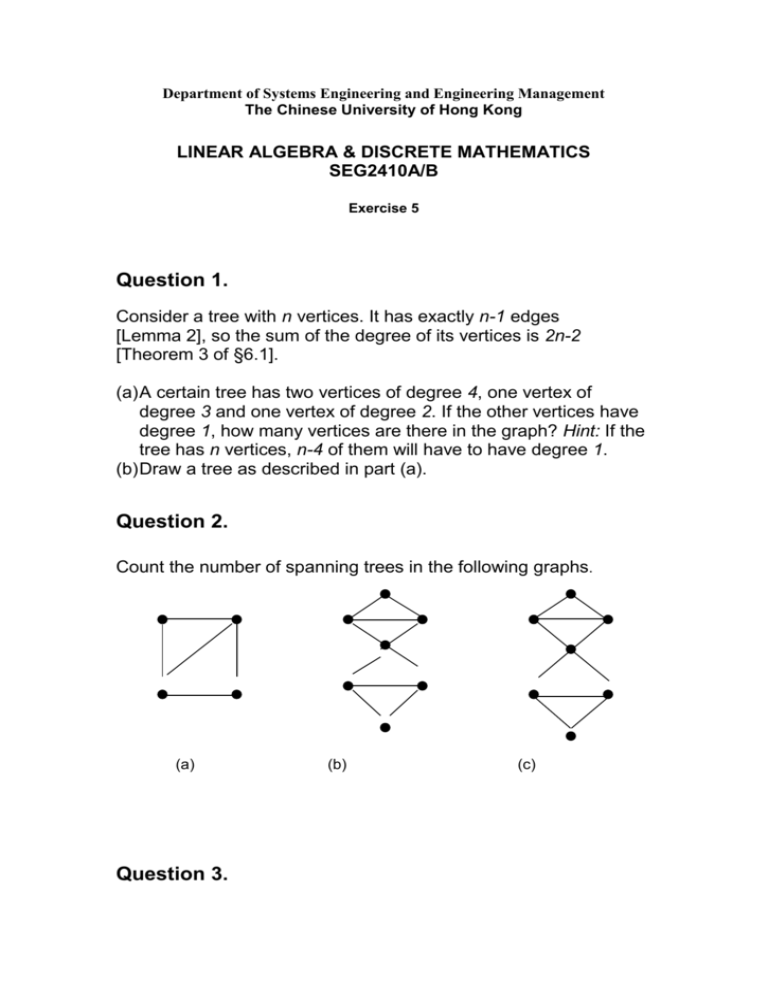
Department of Systems Engineering and Engineering Management The Chinese University of Hong Kong LINEAR ALGEBRA & DISCRETE MATHEMATICS SEG2410A/B Exercise 5 Question 1. Consider a tree with n vertices. It has exactly n-1 edges [Lemma 2], so the sum of the degree of its vertices is 2n-2 [Theorem 3 of §6.1]. (a) A certain tree has two vertices of degree 4, one vertex of degree 3 and one vertex of degree 2. If the other vertices have degree 1, how many vertices are there in the graph? Hint: If the tree has n vertices, n-4 of them will have to have degree 1. (b) Draw a tree as described in part (a). Question 2. Count the number of spanning trees in the following graphs. (a) Question 3. (b) (c) Consider a full m-ary tree with p parents and t leaves. Show that t=(m-1)p+1 no matter what the height is. Question 4. (a) There are seven different types of rooted trees of height 2 in which each node has at most two children. Draw one tree of each type. (b) To which of the types in part (a) do the regular binary trees of height 2 belong? (c) Which of the trees in part (a) are full binary trees? Question 5. Consider the graph shown in the followings: V1 V2 V1 V2 V3 V3 V4 V4 V5 V5 V6 V6 V7 (a) 1) 2) 3) 4) Is this a Hamiltonian graph? Is this a complete graph? Is this a bipartite graph? Is this a complete bipartite graph? (b)
